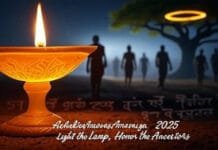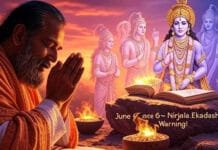A recent decision by Hindu religious leaders in Mathura to prohibit Muslim participation in Holi celebrations has sparked widespread controversy across India. The announcement has drawn criticism from political leaders, activists, and citizens, raising concerns about religious discrimination, social harmony, and the implications of such a ban in a diverse country like India.
This article examines the situation in detail, analyzing the responses from various political parties, religious groups, and the broader public.
Background: The Holi Entry Ban in Mathura
Mathura, known as the birthplace of Lord Krishna, is deeply associated with the grand and colorful celebrations of Holi. The festival, revered for its inclusivity, has historically been a symbol of unity, bringing people of all backgrounds together. However, recent developments indicate that certain Hindu religious leaders have called for a ban on the entry of Muslims into Holi celebrations in the Braj region.
Dinesh Sharma Falahari, a petitioner in the Shri Krishna Janmabhoomi case, reportedly sent a letter written in his own blood to Uttar Pradesh Chief Minister Yogi Adityanath, demanding a strict prohibition on the participation of Muslims in Holi festivities. This has led to widespread criticism, as many see it as an attempt to divide communities based on religion.
Political Reactions to the Ban
AIMIM’s Response: “A Climate of Hatred”
Mohammed Ismail, a leader of the All India Majlis-e-Ittehadul Muslimeen (AIMIM), condemned the decision, asserting that an atmosphere of hatred is prevailing across the country. He emphasized that business and livelihood should remain unaffected by religious considerations, as restrictions like these could result in economic hardships for affected communities.
Congress Criticizes Sectarian Politics
Bhai Jagtap, a senior Congress leader, refrained from commenting on the specific statements made by religious leaders but strongly opposed the idea of restricting religious festivals based on faith. He reiterated that India’s cultural identity is built upon the coexistence of multiple religions, where people of different backgrounds have celebrated Holi, Diwali, and other festivals together for centuries.
Concerns About Religious Segregation
Several other political leaders have expressed concerns that such a ban could set a dangerous precedent. Religious segregation in public celebrations could further deepen societal divides, leading to long-term repercussions for communal harmony in India. Critics argue that such measures violate the constitutional rights of citizens to practice and participate in cultural traditions freely.
















